California Wildfires Likely To Be Among the Most Expensive in History, Costing Insurers Billions—Despite Revocation of 1,600 Home Insurance Policies

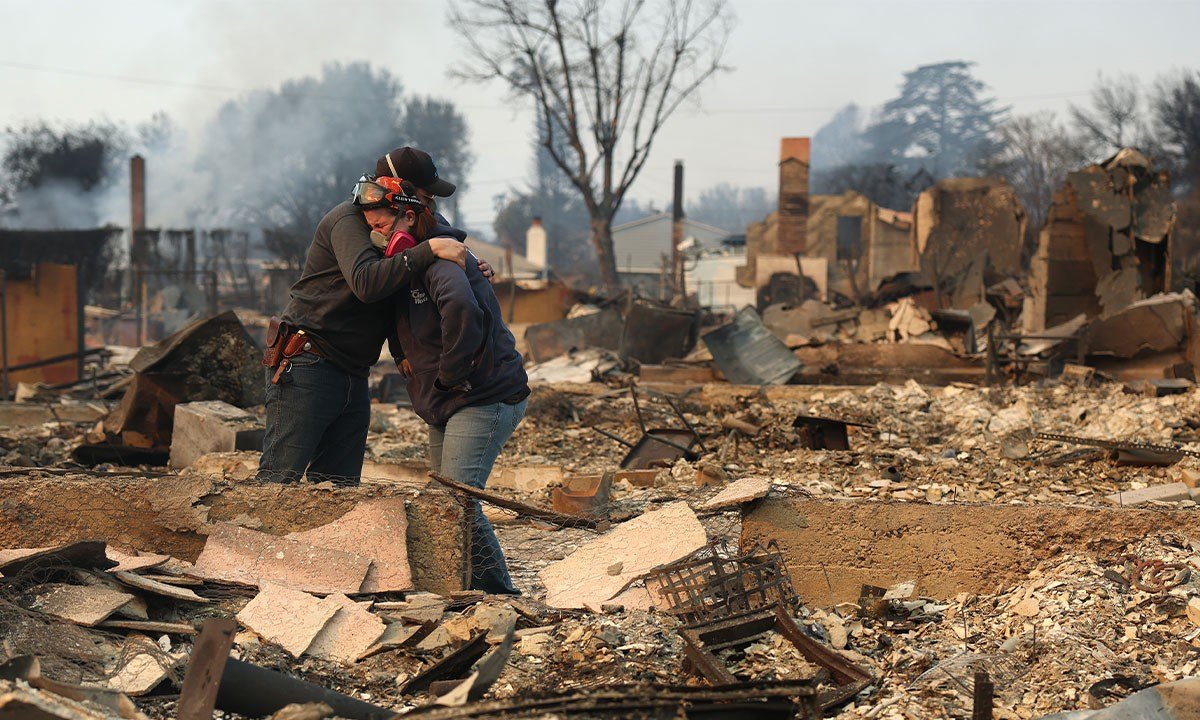
Justin Sullivan/Getty Images
As multiple ferocious wildfires continued raging in and around Los Angeles, analysts have started to tally the preliminary economic damages from the historic natural disaster. Early estimates put the total loss at upward of $57 billion—but even in the best-case scenario, only a fraction of that would be covered by insurance.
The catastrophic fires could not have come at a worse time, with California already in the throes of a home insurance crisis after several major carriers stopped writing new policies in the state over growing wildfire risks.
Whipped up by hurricane-force winds, the blazes tearing through some of the most expensive and star-studded residential enclaves of L.A.—including Pacific Palisades, Malibu, and the Hollywood Hills—have already scorched more than 10,000 structures, caused at least seven deaths, and left 180,000 under evacuation orders, as of Thursday night.
AccuWeather estimated the economic loss to Southern California resulting from the wildfires to be between $52 billion and $57 billion. It could go even higher depending on how quickly the overwhelmed firefighters could bring the infernos under control.
“This is already one of the worst wildfires in California history. Should a large number of additional structures be burned in the coming days, it may become the worst wildfire in modern California history based on the number of structures burned and economic loss,” AccuWeather Chief Meteorologist Jonathan Porter said.
For comparison, AccuWeather estimated the total damage and economic loss from the deadly 2023 Maui wildfires at $13 billion to $16 billion.
L.A.’s most upscale enclaves decimated
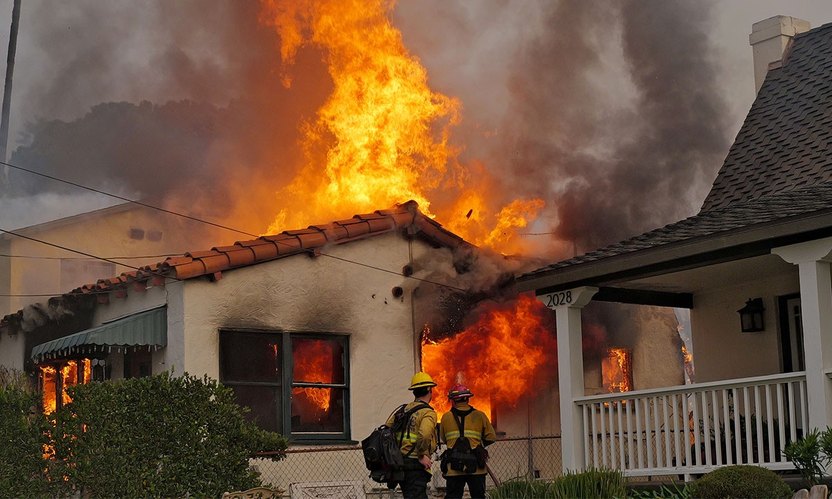
Nick Ut/Getty Images
What’s driving up the loss estimates in Los Angeles is the high property values in the affected neighborhoods—home to many Hollywood A-listers and wealthy executives.
Since Tuesday, when the first wildfire ignited, a growing number of celebrities have reported losing their homes, including Paris Hilton, Billy Crystal, Eugene Levy, and Anthony Hopkins.
“Value lost due to property damage is dependent on the home’s original value and the level of destruction,” explains Realtor.com senior economic research analyst Hannah Jones.
The median list price in Pacific Palisades—the neighborhood hit hardest by the disaster—is $4.72 million as of December 2024, according to data from Realtor.com®. The median list prices in Malibu and Santa Monica stand at $5.76 million and $1.72 million, respectively.
AccuWeather stressed that the real damage could be far greater. Some neighborhoods and towns have yet to share information about their structural losses, injuries, and other types of adverse impacts.
“Importantly, should the fires continue to spread rapidly into densely populated neighborhoods, many thousands of additional very expensive structures will be at risk of burning down, which may result in the AccuWeather estimate for total damage and total economic loss being revised upward substantially,” the weather forecaster reported.
As of Thursday, the Palisades fire remained uncontained, having already burned more than 17,000 acres of land, according to Cal Fire. Close to 180,000 people across the region were under evacuation orders.
Insurers are bracing for huge losses
Meanwhile, J.P. Morgan analysts are projecting that insured losses related to the California wildfires could range from $6 billion to $13 billion.
“We expect a majority of the losses to be related to homeowners’ coverage and a significantly lesser amount to commercial,” they added.
The unprecedented calamity unfolding on the West Coast comes at a time of major shift for the state’s troubled home insurance industry.
Last month, the state Department of Insurance announced a new regulation forcing insurance providers that had stopped providing coverage over mounting wildfire risks to start writing new policies if they want to continue doing business in the Golden State.
The rule will require insurers to increase their coverage in fire-prone areas by 5% every two years until they reach the equivalent of 85% of the statewide market share.
But the catch is that the companies will be allowed to pass the coverage costs on to customers in the form of higher premiums.
California’s insurance crisis
The shift, heralded by Insurance Commissioner Ricardo Lara as “historic,” follows a decision by several major insurance carriers, including State Farm, Farmers Insurance, Allstate, USAA, and The Hartford, to stop issuing new policies in California in recent years.
The community of Pacific Palisades was also hit particularly hard by State Farm’s nonrenewal. The carrier dropped more than 1,600 policies in that neighborhood alone in July 2024, according to CBS News. An additional 2,000 policies were canceled in other parts of L.A.
One of those defunct policies reportedly belonged to the elderly parents of ER nurse Lynn Levin-Guzman. On Wednesday, the woman sneaked back into Pasadena, despite the area being under an evacuation order, and trained a hose on her childhood home in a last-ditch effort to protect it from the Eaton fire raging around it.
Levin-Guzman told ABC7 that her parents’ fire insurance was canceled by their carrier, leaving her with little choice but to take matters into her own hands.
“They’re 90 years old, they’ve lived in this house for 75 years, and they’ve had the same insurance,” a visibly emotional Levin-Guzman said. The insurance company “decided to cancel their fire insurance, so thank you, California insurance companies, for supporting residents who pay taxes and love California,” she added sarcastically.
Costly climate risks
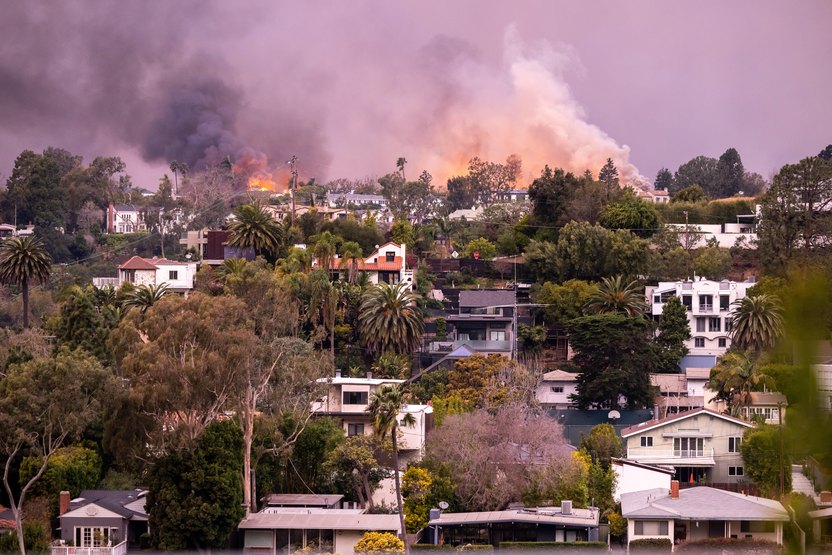
Tiffany Rose/Getty Images
A dearth of insurance options for Californians living in high-risk areas has lowered the values of homes and even hampered sales. According to experts, a lack of insurance coverage derailed at least 13% of real estate deals last year.
Unable to find a private insurance carrier willing to provide coverage, many homeowners turned to the California Fair Access to Insurance Requirements Plan, the state-sponsored insurer offering last-resort, pared-down coverage, often for a premium price. Reuters reported that 1,430 homes in Pacific Palisades were enrolled in the plan in 2024, up 85% from a year earlier.
Last month, an investigation by the Senate Budget Committee revealed that climate-related natural disasters have been the driving force behind a surge in home insurance disruptions in multiple states.
The report presciently warned that “more frequent and intense wildfires could result in a similar death spiral for Western property values; and that climate-related losses are making it harder for the insurance industry to price risk, which has already led to skyrocketing premiums and growth in non-renewals.”
The Senate findings mirror Realtor.com data showing that almost 44.8% of homes in the U.S. with a combined value of nearly $22 trillion are under threat of at least one type of severe or extreme climate risk from floods, winds, or wildfires.
Wildfires specifically threatened 5.5% of homes nationwide last year—and close to 40% of these high-risk homes were in California.
Categories
Recent Posts
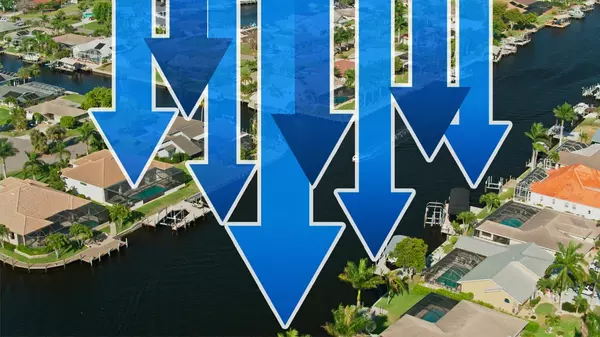



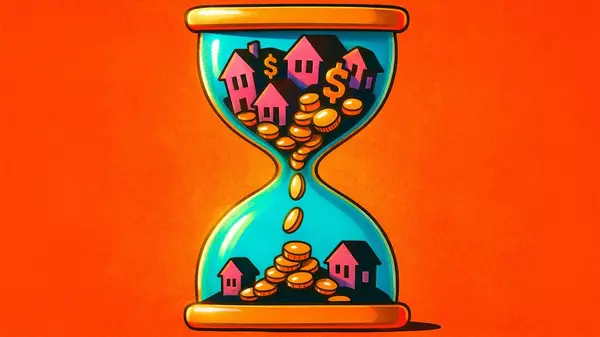




"My job is to find and attract mastery-based agents to the office, protect the culture, and make sure everyone is happy! "
